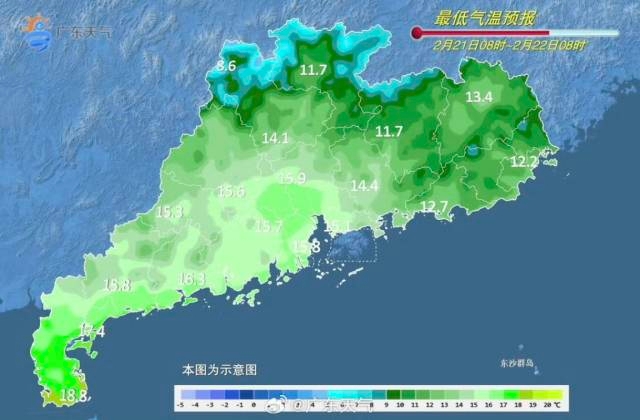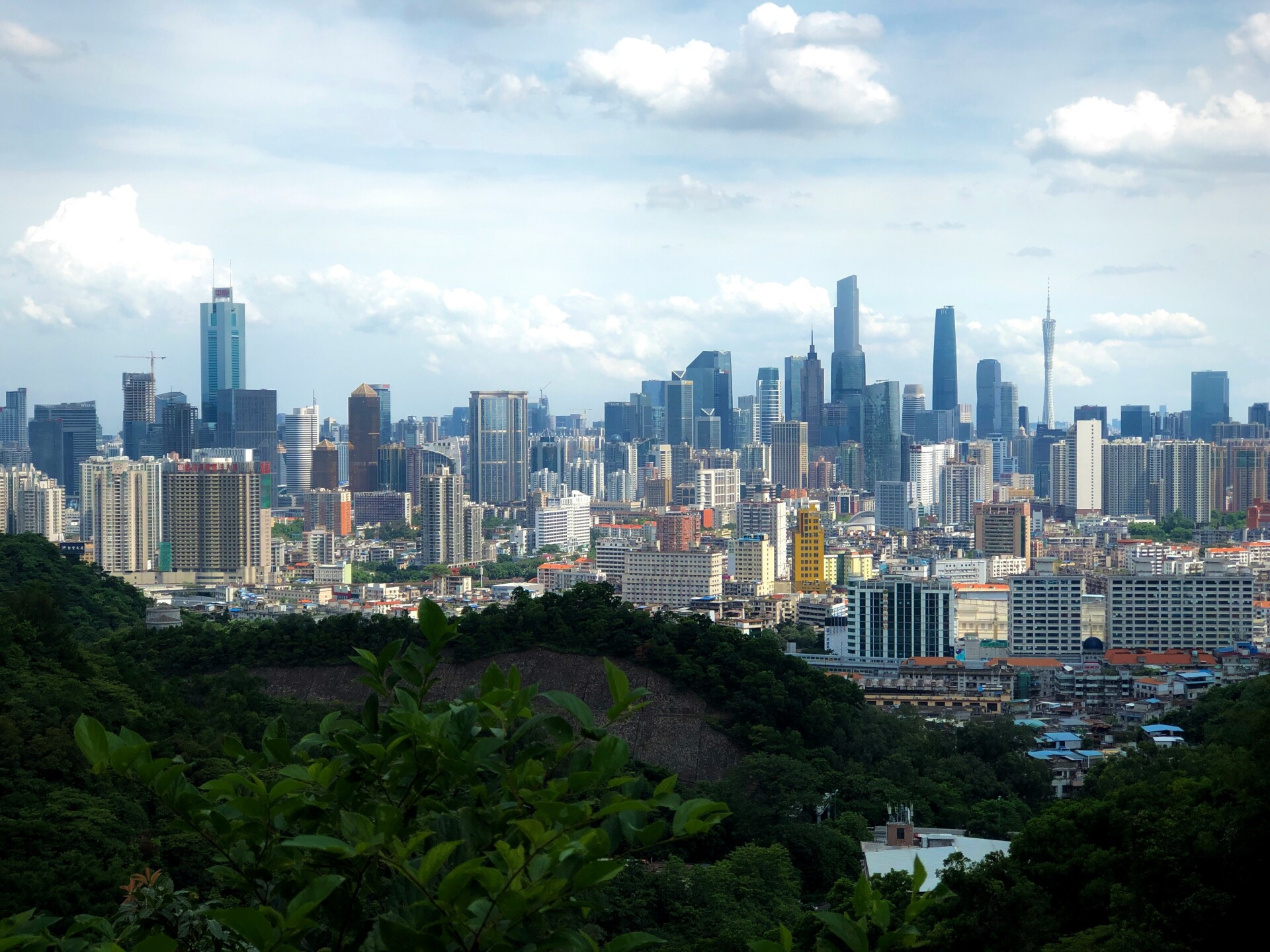Starting today (February 21), a new wave of cold air will bring a drop in temperatures across Guangdong, with the lowest temperatures expected on the morning of February 24.

The lowest temperature forecasts (Photo by Guangdong Meteorological Service)
According to the Guangdong Meteorological Service, the cold air will be active over the next three days, leading to cooler weather across the province. Northern Guangdong will experience overcast conditions with light rain, while the northwest is expected to see 3 to 4 days of cold, rainy weather. Central and southern areas will have cloudy to overcast skies, with some areas experiencing light rain. The overall temperature drop across the province is expected to be between 3℃ and 6℃.
The lowest temperatures of this cold wave will occur on the morning of February 24. Forecasts indicate:
· Northwestern Guangdong: 4℃-6℃, with high-altitude areas dropping to 0℃-2℃.
· Heyuan, Meizhou, and northern Pearl River Delta: 6℃-10℃.
· Other regions in Guangdong: 11℃-14℃.
Guangdong weather forecast
February 21
Northern Guangdong and the northwestern Pearl River Delta will see overcast skies with light rain, while other areas will have cloudy to overcast conditions with occasional light rain. Some areas in the western Pearl River Delta and northern Guangdong may experience light fog in the morning and evening.
February 22
Northwestern areas will have overcast skies with scattered light rain, while other regions will see cloudy to overcast conditions with isolated rain showers.
February 23
Northwestern areas will continue to experience overcast skies with light rain, while the western Pearl River Delta and western Guangdong will see cloudy to overcast conditions with scattered showers. Other areas will have cloudy to overcast weather.

Guangzhou (Photo: Unsplash)
Guangzhou weather forecast

Residents are advised to stay warm and take precautions against temperature fluctuations.
Author: Huang Qini
Editor: Wei Shen, James, Shen He
















